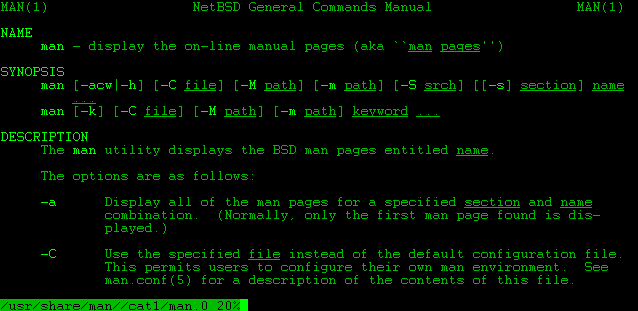UNIX is an operating system developed at AT&T Bell Laboratories in 1969 and widely deployed today in the enterprise networking environment. It was the first operating system written entirely in the C programming language and consequently has close ties to C. UNIX was designed as a time-sharing environment, in contrast to the batch environment of most computing systems of the time.

With this strong operating system, multiple users could simultaneously access the system and run their programs, communicating interactively with the system using remote terminals. Users could thus collaborate in real-time on computing projects by sharing files and resources.
UNIX became widely available around 1975 and established strong roots in academic computing environments, where it is still used and taught today. It has the stability and robustness of an operating system that has evolved over 25 years, but it has a reputation for being difficult to learn and administer. This OS has evolved into a number of different “flavors” as vendors have adapted it to their own hardware platforms.
These flavors include the following:
- System V: Evolved from versions of UNIX developed by UNIX Systems Laboratories and AT&T
- BSD: Developed at the University of California, Berkeley; the basis of the SunOS from Sun Microsystems
- AIX: Developed by IBM for its mid-range computer systems
- HP/UX: Developed by Hewlett-Packard
- Solaris: Developed by Sun Microsystems for its SPARC systems
- IRIX: Developed by Silicon Graphics for its high-end workstations
The original source code for System V UNIX is owned by Santa Cruz Operation (SCO), which licenses the code to other vendors and offers its own version called “SCO UNIX” for various hardware platforms. The actual trademark “UNIX” is now owned by The Open Group, a consortium of software and hardware manufacturers.
Open versions of UNIX
A variety of open versions of UNIX also exist. These are highly popular machine-independent implementations of UNIX that have been compiled to run on multiple hardware platforms. Their source code is available with few restrictions. An example is FreeBSD, which evolved from BSD UNIX. Another example is Linux, a UNIX-like operating system that is rapidly growing in popularity.
Root is the Unix superuser (like administrator in Windows).
Several attempts have been made to standardize the UNIX operating system. AT&T created a written standard called the System V Interface Definition (SVID) for its UNIX System V Release 4 (SVR4). In addition, an industry consortium has created a standard called Portable Operating System Interface for UNIX (POSIX).
Microsft OS supports Unix
Microsoft Windows NT and Windows 2000 support interoperability with UNIX platforms in heterogeneous enterprise environments through protocols, services, and utilities such as the following:
- Common support for industry-standard protocols such as TCP/IP, Dynamic Host Configuration Protocol (DHCP), Domain Name System (DNS), and remote procedure call (RPC) functionality
- Support for File Transfer Protocol (FTP) and Hypertext Transfer Protocol (HTTP) for cross-platform file sharing
- Support for UNIX printing through Line Printer Daemon (LPD), Line Printer Queue (LPQ), and Line Printer Remote (LPR) utilities
- Support for remote terminal emulation using Telnet
- Support for cross-platform database access through open database connectivity (ODBC)
- Support for industry-standard network management through Simple Network Management Protocol (SNMP) and Remote Network Monitoring (RMON)
Third-party companies also offer Windows-compatible interoperability solutions such as the following:
- X Windows clients for Windows-based PCs
- Server Message Block (SMB) to Network File System (NFS) protocol conversion for file sharing between platforms